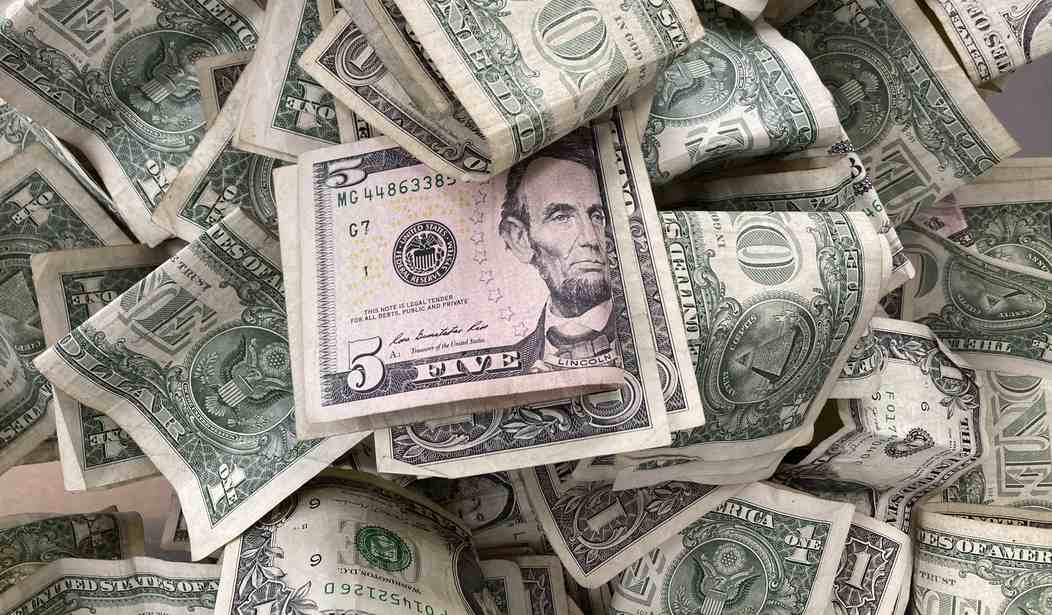Inflation has reached its highest level in decades. While we're not yet in a situation like we had in the 1970s -- and we can hope that the Federal Reserve will regain control before it reaches that point -- there are still plenty of reasons to be upset that inflation is getting so out of hand.
Inflation is commonly defined as a general increase in prices, leaving our money with less purchasing power. When the prices of goods and services increase faster than wages, workers essentially take a pay cut. Savers and those who receive interest payments also lose out. Once inflation hits the value of the money saved, its spending power wanes.
Of course, wages and interest rates eventually adjust, but the time lag can be extremely painful for many folks and businesses.
And though the tax code has improved since the 1970s, it still has several features that interact with inflation to inflict unjust punishment on taxpayers. For instance, when there's inflation, investments and savings can end up being taxed away. Larry Kudlow, former president Trump's chief economist, illustrated the problem for capital gains like this:
"You invest $1,000, and after 10 years, you sell that investment for $1,200. But if inflation averaged 2.5% in that period, the $1,200 you receive will be worth less in real terms than the $1,000 you invested. And yet, under current law, you will pay a tax on your $200 capital gain."
This phenomenon is well-documented by tax experts. So is the penalizing effect of inflation for businesses. Instead of fully and immediately deducting investment costs from their taxes, they must follow a depreciation schedule as the money loses value. Two Tax Foundation researchers gave this example: "If a company spends $39,000 to purchase a building, the deduction for $1,000 in year 39 is worth a lot less than the $1,000 deduction in year 1."
Recommended
Not everyone loses when inflation suddenly appears, though. For example, debtors get to repay their loans in less-valuable dollars. This benefits no one more than the federal government, the world's biggest debtor. Think about it this way: With 6.8% cumulative inflation over the past year, the value of the roughly $24 trillion Uncle Sam owes to the public has become less burdensome without Congress showing any sign of fiscal responsibility.
Not surprisingly, history is full of kings and governments using inflation to reduce their debt burdens. Understandably, holders of debt bonds get nervous when highly indebted governments are slow to rein in inflation.
People with fixed-rate mortgages and other debts can similarly benefit from inflation. However, if it persists, interest rates could start to compensate by rising as they did in the 1970s. If this were to happen, everyone who owes money with flexible interest rates will see their payments go up. Depending on how fast rates and inflation increase, borrowers could quickly find themselves owing a lot more.
Just like everyday borrowers, the federal government may face such a crisis. Some $6 trillion -- or 25% -- of our debt has a maturity of less than one year. Every year or so, that amount needs to be paid back and borrowed again. However, if inflation persists, creditors will demand higher interest rates next time. Given the massive size of our public debt, even a small increase could trigger much larger interest payments.
According to the Congressional Budget Office, in the next decade, the Department of the Treasury will have to pay somewhere in the neighborhood of $5.4 trillion in interest payments. A 1% increase in rates would add some $250 billion a year to that sum. This is money the federal government does not currently have and would have to borrow at higher rates.
In other words, inflation, in conjunction with the enormous government debt and short-term financing, could unleash dramatic consequences. This risk should provide important incentives to put America's fiscal house in order, including moving away from short-term financing. But so far, there's no sign of anyone willing to make the tough choice.
While these are only a few of the problems created by inflation, they impose real, long-term costs on real people. It's yet another thing to think about before agreeing to more aggressive, expensive government programs.

























Join the conversation as a VIP Member